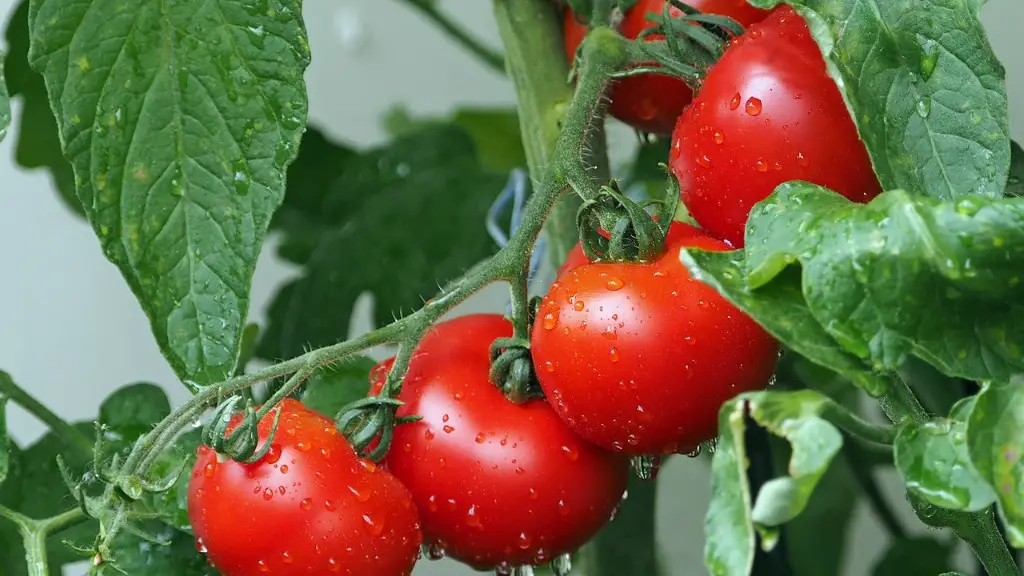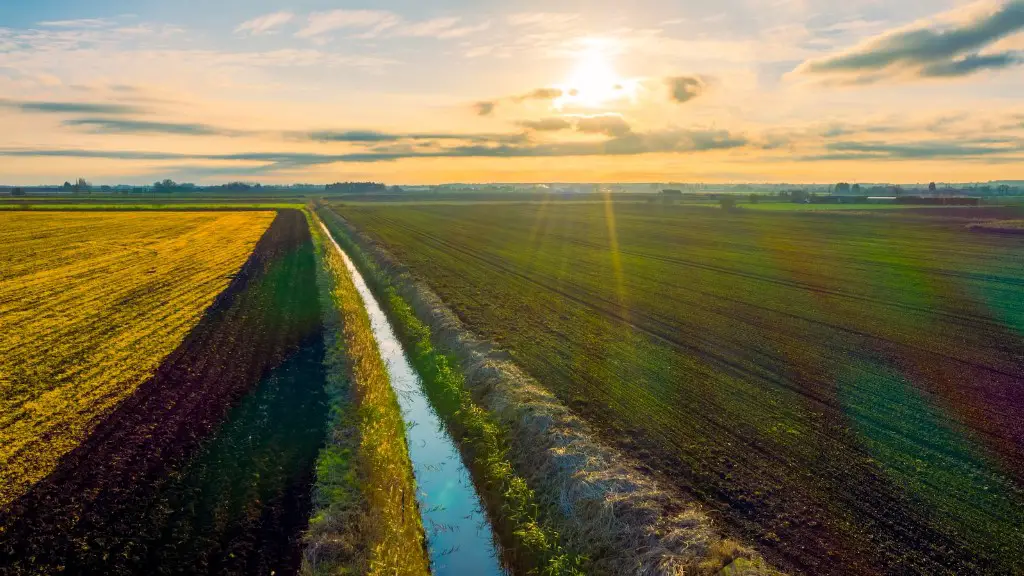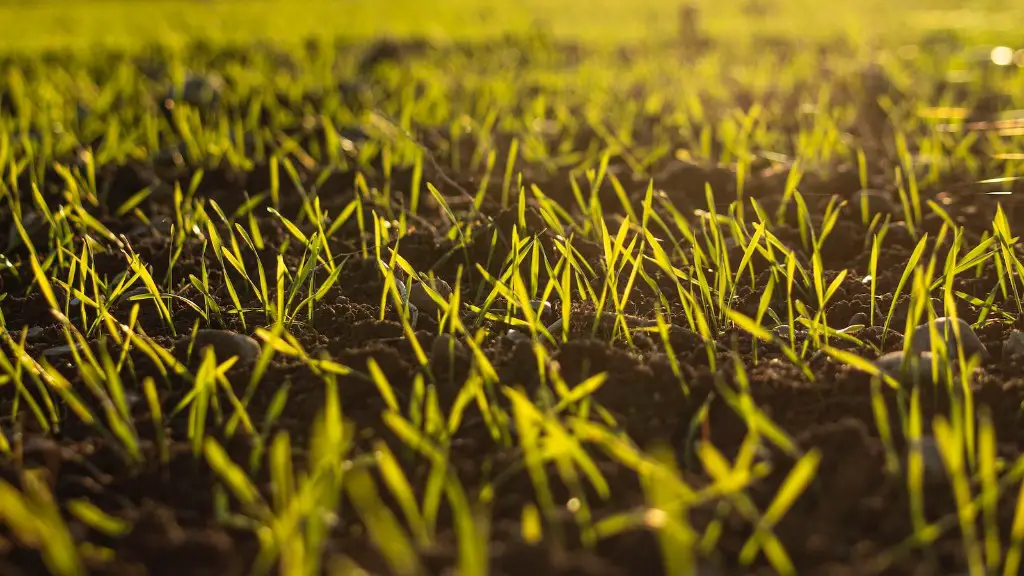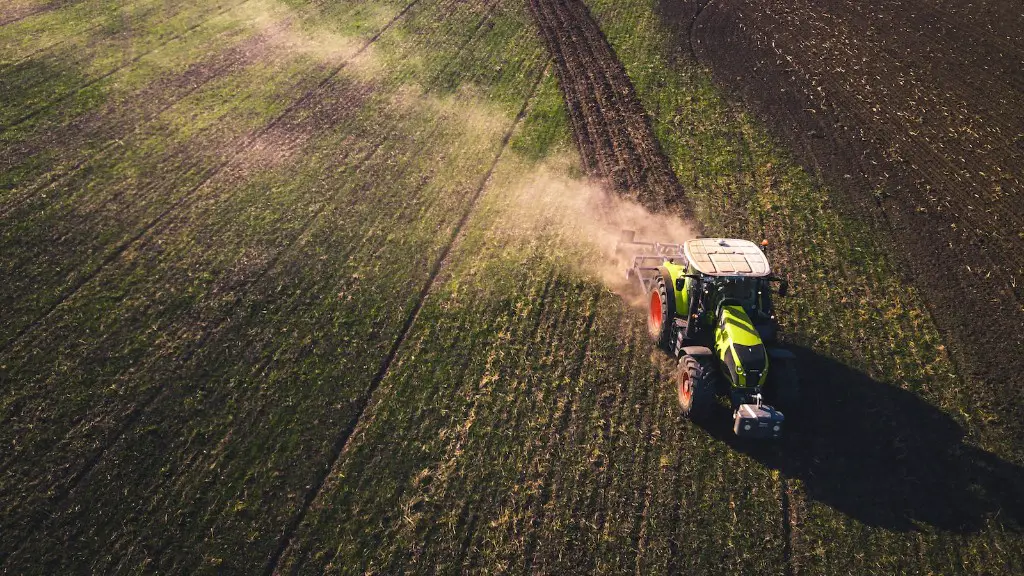Copper sulfate is a popular compound used in agricultural and horticultural processes. It is generally recognized as a powerful and effective fungicide, and is employed as a pesticide to treat a variety of efflorescence and disease-causing organisms. It is used in both large and small quantities and is generally considered safe to use by farmers, researchers, and gardeners alike.
Copper sulfate is utilized as a primary ingredient in many different types of fungicides, and is typically effective once applied. It is effective when taken orally or topically and is used to treat a variety of fungi and mildew. Common fungicides that use copper sulfate include Daconil, Fungicide 3, Strobe, and several others.
Copper sulfate is also often used to control slugs and snails on agricultural crops. It is applied as a border spray around the perimeter of the fields in order to reduce slug populations by preventing the movement of slugs and snails from the surrounding areas.
In addition, copper sulfate can also be used to treat bacterial infections on plants. It can be used to control bacterial leaf blight, fire blight, and several other bacterial diseases. Copper sulfate is mixed with water and sprayed onto the affected plants to control the growth of the bacteria and help to prevent the spread of the disease to other plants.
Finally, copper sulfate can also be used to treat nematode infestations on fruit trees and ornamentals. This is done by applying copper sulfate to the soil around the affected plants. The copper is absorbed by the plant and the nematodes are destroyed.
Preventing Fungal Diseases
Copper sulfate can be used to prevent a wide range of fungal diseases. These diseases include powdery mildew, downy mildews, black spot, and apple scab. Copper sulfate can be used to prevent the growth and spread of these diseases by spraying it directly onto the plants or their surrounding areas.
Copper sulfate is usually mixed with water to form a solution and then sprayed over the affected plants. This method is particularly useful when controlling fungal diseases on fruit trees, as this compound can reach into the crevices and small branches within the trees foliage.
Furthermore, copper sulfate can also be used as a soil-borne fungicide. This involves applying a combination of copper sulfate and water directly to the affected soil to kill off the fungal spores within it.
Finally, copper sulfate can also be utilized as a foliar fungus control. This requires the application of an aerosolized mixture of the compound onto the leaves of the affected plants. This method is particularly effective against certain types of fungal diseases, such as powdery mildew, downy mildew, and black spot.
Disease Prevention Through Fungicides
Fungicides are chemicals used to control the spread and growth of fungal diseases on crops or plants. Copper sulfate is a common component of many fungicide formulations, as it helps to reduce the spread and occurrence of a wide range of fungal diseases.
When copper sulfate is used as a component of a fungicide, it is usually a combination of copper and a fungicide compound. This usually involves adding copper sulfate to a mixture of water and an approved fungicide. This mixture is then sprayed over the affected plants to prevent the spread and growth of the fungus.
There are a number of fungicides available on the market that contain copper sulfate. These products are generally safe for use on both food and ornamental plants, and are often used as preventative measures to reduce the spread and occurrence of fungal diseases.
Furthermore, copper sulfate fungicides can also be used as curative treatments. This means they can be used to help control existing fungal diseases, as well as preventing them from recurring. Copper sulfate fungicides are effective in controlling many fungal diseases, including powdery mildew, downy mildew, and black spot.
Finally, copper sulfate fungicides can also be used as an anti-transpirant. This means that it can help to stop moisture from evaporating from the plant leaves, reducing the spread and growth of certain fungal diseases. This makes copper sulfate a powerful and effective tool for preventing fungal diseases on plants.
Protection from Bacterial Infestations
Bacterial infections on plants can be detrimental to their growth and health, so it is important to use preventive measures to prevent their spread. Copper sulfate can be used as a primary ingredient in many bacterial prevention products.
When applied as a preventative measure, copper sulfate can help to reduce the incidence of bacterial diseases such as fire blight, bacterial leaf blight, and several other bacterial diseases. Copper sulfate mixed with water is usually sprayed directly onto the affected plants or their surrounding areas to help reduce the spread and growth of the bacteria.
Furthermore, copper sulfate can also be used as a foliar fungicide. This involves spraying a mixture of copper sulfate and water directly onto the leaves of the affected plants. This method is particularly effective against certain types of bacteria, such as fire blight, bacterial leaf blight, and several other bacterial diseases.
Finally, copper sulfate can also be used to protect plants from nematode infestations. This involves applying a mixture of copper sulfate and water directly to the soil around the affected plants. The copper is absorbed by the plants and the nematodes are destroyed before they can spread to other plants.
Use as an Herbicide
Copper sulfate can also be utilized as an herbicide. This involves applying a mixture of copper sulfate and water directly to the weeds or other unwanted plants to help control their growth and spread. This method is particularly effective against certain types of annual and perennial weeds, as well as grasses.
Copper sulfate inhibits the growth of weeds by damaging their root system and decreasing the availability of vital nutrients. This makes it an effective and cost-efficient tool for controlling weeds. Additionally, copper sulfate is also relatively safe for beneficial insects, making it a great choice for sustainable and organic gardening.
Furthermore, copper sulfate can also be used to control algae growth on plants. This is done by applying a mixture of copper sulfate and water directly to the affected areas. This helps to prevent the growth and spread of the algae and makes it easier to control.
Finally, copper sulfate can also be used as a fertilizer. This involves adding a small amount of copper sulfate to the soil to help improve certain aspects of the soil, such as its pH or fertility. Copper sulfate acts as a micronutrient, helping to enrich the soil and make it more suitable for plant growth.
Conclusion
Copper sulfate is a popular compound used in a variety of agricultural and horticultural processes. It is an effective fungicide, and is often utilized as an ingredient in pesticides to help treat a number of plant diseases. Copper sulfate is also used to prevent the spread of a variety of fungal diseases, as well as controlling the growth of weeds and algae. Finally, copper sulfate can also be used as a fertilizer to improve the fertility of the soil. In conclusion, copper sulfate is a versatile and cost-effective tool for helping to keep crops and plants healthy.





